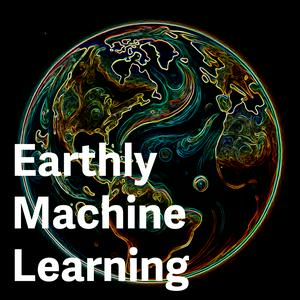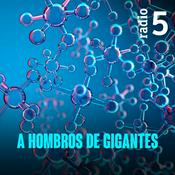46 episodios
- Climate Knowledge in Large Language Models
Kuznetsov, I., Grassi, J., Pantiukhin, D., Shapkin, B., Jung, T., & Koldunov, N. (2025). Alfred Wegener Institute, Helmholtz Centre for Polar and Marine Research.
LLMs have an internal "map" of the climate, but it is fuzzy: Without access to external tools, Large Language Models (LLMs) can recall the general structure of Earth’s climate—correctly identifying that the tropics are warm and high latitudes are cold. However, their specific numeric predictions are often inaccurate, with average errors ranging from 3°C to 6°C compared to historical weather data.
Location names matter more than coordinates: The study found that providing geographic context—such as the country, region, or city name—alongside coordinates reduced prediction errors by an average of 27%. This suggests models rely heavily on text associations with place names rather than possessing a precise spatial understanding of latitude and longitude.
Performance struggles with altitude and local trends: Models perform significantly worse in mountainous regions, with errors spiking sharply at elevations above 1500 meters. Furthermore, while LLMs can estimate the global average magnitude of warming, they fail to accurately reproduce the specific local patterns of temperature change that are essential for understanding regional climate dynamics.
Caution is needed for scientific use: The results highlight that while LLMs encode a static snapshot of climatological averages, they lack true physical understanding and struggle with dynamic trends. Consequently, they should not be relied upon as standalone climate databases; reliable applications require connecting them to external, authoritative data sources. - Artificial Intelligence for Atmospheric Sciences: A Research Roadmap
Citation: Zaidan, M. A., Motlagh, N. H., Nurmi, P., Hussein, T., Kulmala, M., Petäjä, T., & Tarkoma, S. (2025). Artificial Intelligence for Atmospheric Sciences: A Research Roadmap.
Revolutionizing Environmental Monitoring: The paper illustrates how AI is transforming atmospheric sciences by bridging the gap between computer science and environmental research. It details how AI processes massive datasets generated by diverse sources—including satellite imagery, ground-based research stations, and low-cost IoT sensors—to improve our understanding of air quality, extreme weather events, and climate change.
Optimizing Infrastructure and Prediction: Current AI applications are already enhancing operational meteorology and Earth system modeling. By utilizing techniques like deep learning and neural networks, researchers can automate sensor calibration, detect anomalies in real-time, and simulate complex climate scenarios with greater speed and efficiency than traditional physical models allow.
A Roadmap for Future Hardware: To handle the escalating demand for data, the authors propose a hardware roadmap that includes self-sustaining and biodegradable sensor networks, CubeSat constellations for high-resolution monitoring, and the adoption of cutting-edge computing paradigms like quantum, neuromorphic, and DNA-based molecular computing.
Next-Generation AI Methodologies: The paper argues for the adoption of advanced AI techniques such as Foundation Models and Generative AI (including Digital Twins of Earth) to predict complex atmospheric phenomena. Crucially, it emphasizes the need for Explainable AI (XAI) and Physics-Informed Machine Learning to solve the "black box" problem, ensuring that AI predictions abide by physical laws and are transparent enough for scientists and policymakers to trust.
From Data to Action: Beyond observation, the research highlights the shift toward actionable insights. This includes automated feedback loops (such as smart HVAC systems responding to air quality data), the integration of citizen science to augment data collection, and the establishment of robust ethical frameworks to manage data privacy and governance in global monitoring networks. - Differentiable and accelerated spherical harmonic and Wigner transforms
Matthew A. Price, Jason D. McEwen
*Journal of Computational Physics (2024)*
* This work introduces novel algorithmic structures for the **accelerated and differentiable computation** of generalized Fourier transforms on the sphere ($S^2$) and the rotation group ($SO(3)$), specifically spherical harmonic and Wigner transforms.
* A key component is a **recursive algorithm for Wigner d-functions** designed to be stable to high harmonic degrees and extremely parallelizable, making the algorithms well-suited for high throughput computing on modern hardware accelerators such as GPUs.
* The transforms support efficient computation of gradients, which is critical for machine learning and other differentiable programming tasks, achieved through a **hybrid automatic and manual differentiation approach** to avoid the memory overhead associated with full automatic differentiation.
* Implemented in the open-source **S2FFT** software code (within the JAX differentiable programming framework), the algorithms support various sampling schemes, including equiangular samplings that admit exact spherical harmonic transforms.
* Benchmarking results demonstrate **up to a 400-fold acceleration** compared to alternative C codes, and the transforms exhibit **very close to optimal linear scaling** when distributed over multiple GPUs, yielding an unprecedented effective linear time complexity (O(L)) given sufficient computational resources. - Score-based diffusion nowcasting of GOES imagery
*Randy J. Chase, Katherine Haynes, Lander Ver Hoef, Imme Ebert-Uphoff, a Cooperative Institute for Research in the Atmosphere, Colorado State University, Fort Collins, CO, b Electrical and Computer Engineering, Colorado State University, Fort Collins, CO*
* The research explored score-based diffusion models to perform short-term forecasts (nowcasting) of GOES geostationary infrared satellite imagery (zero to three hours). This newer machine learning methodology combats the issue of **blurry forecasts** often produced by earlier neural network types, enabling the generation of clearer and more realistic-looking forecasts.
* The **residual correction diffusion model (CorrDiff)** proved to be the best-performing model, quantitatively outperforming all other tested diffusion models, a traditional Mean Squared Error trained U-Net, and a persistence forecast by one to two kelvin on root mean squared error.
* The diffusion models demonstrated sophisticated predictive capabilities, showing the ability to not only advect existing clouds but also to **generate and decay clouds**, including initiating convection, despite being initialized with only the past 20 minutes of satellite imagery.
* A key benefit of the diffusion framework is the capacity for **out-of-the-box ensemble generation**, which enhances pixel-based metrics and provides useful uncertainty quantification where the spread of the ensemble generally correlates well to the forecast error.
* However, the diffusion models are computationally intensive, with the Diff and CorrDiff models taking approximately five days to train on specialized hardware and about 10 minutes to generate a 10-member, three-hour forecast, compared to just 10 seconds for the baseline U-Net forecast. - FuXi-Ocean: A Global Ocean Forecasting System with Sub-Daily Resolution
*Qiusheng Huang, Yuan Niu, Xiaohui Zhong, Anboyu Guo, Lei Chen, Dianjun Zhang, Xuefeng Zhang, Hao Li*
---
* **First Data-Driven Sub-Daily Global Forecast:** FuXi-Ocean is the first deep learning-based global ocean forecasting model to achieve six-hour temporal resolution at an eddy-resolving 1/12° spatial resolution, with vertical coverage extending up to 1500 meters. This capability addresses a crucial need for high-frequency predictions that traditional numerical models struggle to deliver efficiently.
* **Adaptive Temporal Modeling Innovation:** A key component of the model is the **Mixture-of-Time (MoT) module**, which adaptively integrates predictions from multiple temporal contexts based on variable-specific reliability. This mechanism is crucial for accommodating the diverse temporal dynamics of different ocean variables (e.g., fast-changing surface variables vs. slowly evolving deep-ocean processes) and effectively mitigates the accumulation of forecast errors in sequential prediction.
* **Superior Performance and Efficiency:** The model demonstrates superior skill in predicting key variables (temperature, salinity, and currents) compared to state-of-the-art operational numerical forecasting systems (like HYCOM, BLK, and FOAM) at sub-daily intervals. Furthermore, it achieves this high performance with remarkable data efficiency, requiring only approximately 9 years of training data and relying solely on ocean variables (T, S, U, V, SSH) as input, without external data dependencies like atmospheric forcing.
* **High-Impact Applications:** By providing accurate, high-resolution, sub-daily forecasts, FuXi-Ocean creates critical opportunities for maritime operations, including improved navigation, search and rescue, oil spill trajectory tracking, and enhanced marine resource management, particularly due to its comprehensive vertical coverage (0-1500 m).
Más podcasts de Ciencias
Podcasts a la moda de Ciencias
Acerca de Earthly Machine Learning
“Earthly Machine Learning (EML)” offers AI-generated insights into cutting-edge machine learning research in weather and climate sciences. Powered by Google NotebookLM, each episode distils the essence of a standout paper, helping you decide if it’s worth a deeper look. Stay updated on the ML innovations shaping our understanding of Earth.
It may contain hallucinations.
Sitio web del podcastEscucha Earthly Machine Learning, Mándarax: ciencia en tu vida diaria y muchos más podcasts de todo el mundo con la aplicación de radio.net

Descarga la app gratuita: radio.net
- Añadir radios y podcasts a favoritos
- Transmisión por Wi-Fi y Bluetooth
- Carplay & Android Auto compatible
- Muchas otras funciones de la app
Descarga la app gratuita: radio.net
- Añadir radios y podcasts a favoritos
- Transmisión por Wi-Fi y Bluetooth
- Carplay & Android Auto compatible
- Muchas otras funciones de la app


Earthly Machine Learning
Escanea el código,
Descarga la app,
Escucha.
Descarga la app,
Escucha.




































